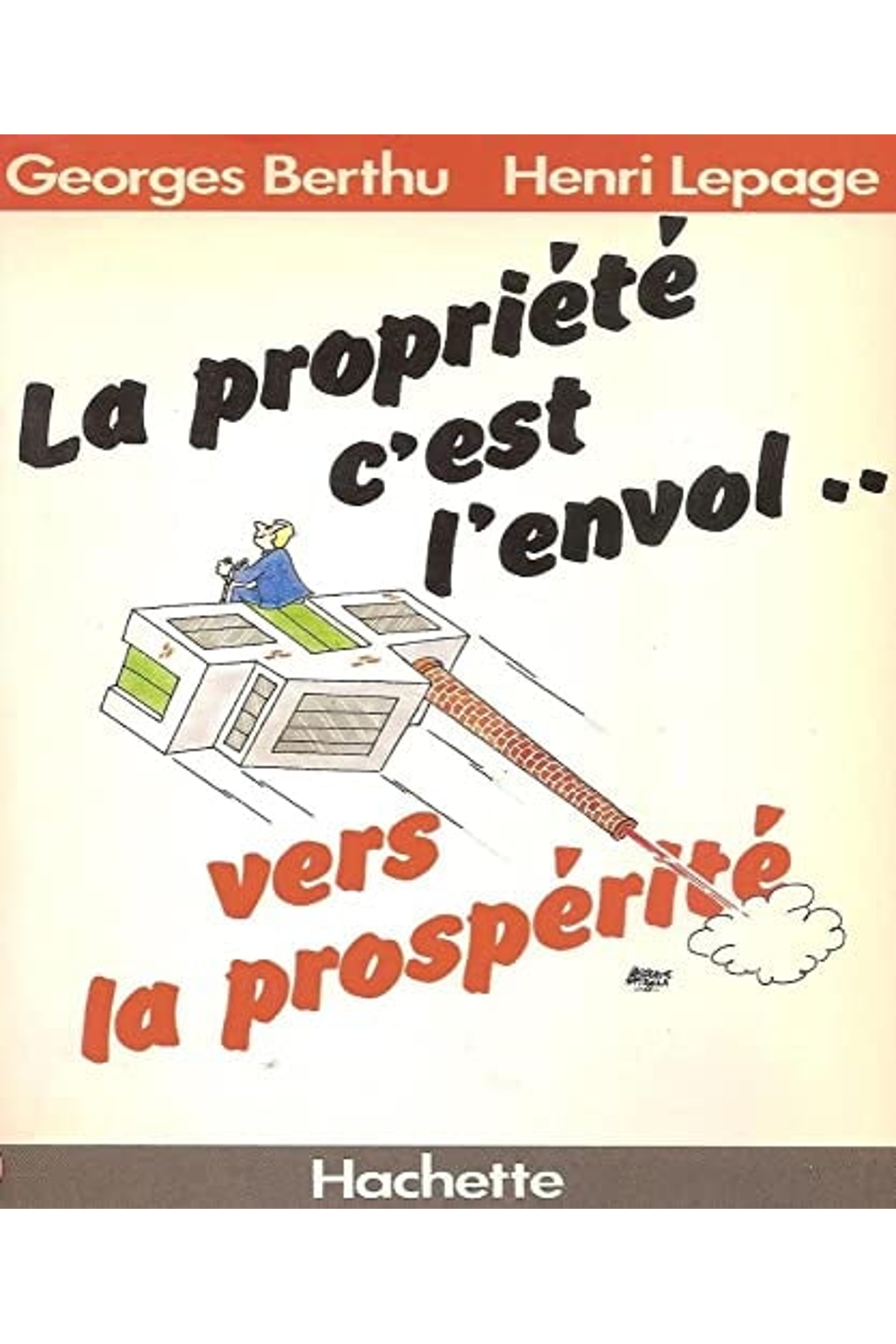Discover “La proprit c’est l’envol– vers la prosprit” (Property is Taking Flight – Towards Prosperity), a French edition by Georges Berthu exploring the powerful link between property rights and economic growth. Published in 1986 by Hachette, this 151-page paperback argues that secure property ownership is a crucial catalyst for individual and societal prosperity. Written in accessible French, this book likely reflects Berthu’s classical liberal or libertarian perspective, emphasizing free markets and individual responsibility. Ideal for French language learners, economists, and anyone interested in the foundations of a thriving economy, this vintage edition offers a unique insight into 1980s economic thought. This book presents a compelling case for property ownership as the engine of wealth creation, innovation, and personal empowerment.
La propriete c’est l’envol– vers la prosperite (French Edition)
15,06 $
In stock
Description
Text: French
Unlock the secrets to prosperity with "La proprit c'est l'envol-- vers la prosprit (French Edition)" by Georges Berthu, a thought-provoking exploration of the power and potential of property ownership. Published by Hachette in 1986, this French-language paperback delves into the profound connection between property rights and individual and societal advancement. This 151-page book, written in accessible French, goes beyond a simple definition of property, exploring its role as a catalyst for economic growth and personal fulfillment. Berthu presents a compelling argument for how secure property rights empower individuals to invest, innovate, and ultimately contribute to a more prosperous society. "La proprit c'est l'envol" (which translates to "Property is taking flight") suggests a dynamic and aspirational view of ownership, not just as a static possession, but as a launchpad for upward mobility. While details about the precise arguments within the book are scarce online, Berthu is known for his work in economics and political science, often focusing on themes of liberty, individual responsibility, and the importance of free markets. Therefore, it is likely that "La proprit c'est l'envol" presents a classical liberal or libertarian perspective on property rights, emphasizing their role in fostering a thriving economy. Expect arguments that connect property ownership to increased productivity, capital accumulation, and overall economic well-being. The book likely examines the impact of government policies on property rights and advocates for a legal framework that protects and encourages private ownership. This edition is perfect for students of French, economists, political scientists, or anyone interested in understanding the foundational principles of prosperity. Whether you are a native French speaker or an advanced learner, "La proprit c'est l'envol-- vers la prosprit" offers a valuable opportunity to engage with important ideas in the language of Molire. Its vintage publication date provides a unique perspective on economic thought during the 1980s, making it a valuable addition to any collection. The book weighs 4000, which is clearly incorrect. This is probably a typo. Expand your understanding of economics and the French language with this timeless exploration of property and prosperity!
Additional information
| Authors | |
|---|---|
| Binding | |
| Condition | |
| ISBN-10 | 2010124545 |
| ISBN-13 | 9782010124549 |
| Language | |
| Pages | 151 |
| Publisher | |
| Year published | |
| Weight | 4000 |
SKU: G-9782010124549-5
Categories: Foreign Language Study & Reference, Reference
Related products
Chateaux de La Loire -OSI
15,09 $Red Sauce Brown Sauce
15,41 $
- Additional information
- Currencies
- USD – United States dollar
- EUR – Euro
- GBP – Pound sterling
- CNY – Chinese yuan
- BRL – Brazilian real
- MXN – Mexican peso
- JPY – Japanese yen
- PHP – Philippine peso
- THB – Thai baht
- PLN – Polish złoty
- CAD – Canadian dollar
- MYR – Malaysian ringgit
- AUD – Australian dollar
- TWD – New Taiwan dollar
- CZK – Czech koruna
- SEK – Swedish krona
- HUF – Hungarian forint
- ILS – Israeli new shekel
- CHF – Swiss franc
- HKD – Hong Kong dollar
- DKK – Danish krone
- SGD – Singapore dollar
- NOK – Norwegian krone
- NZD – New Zealand dollar





